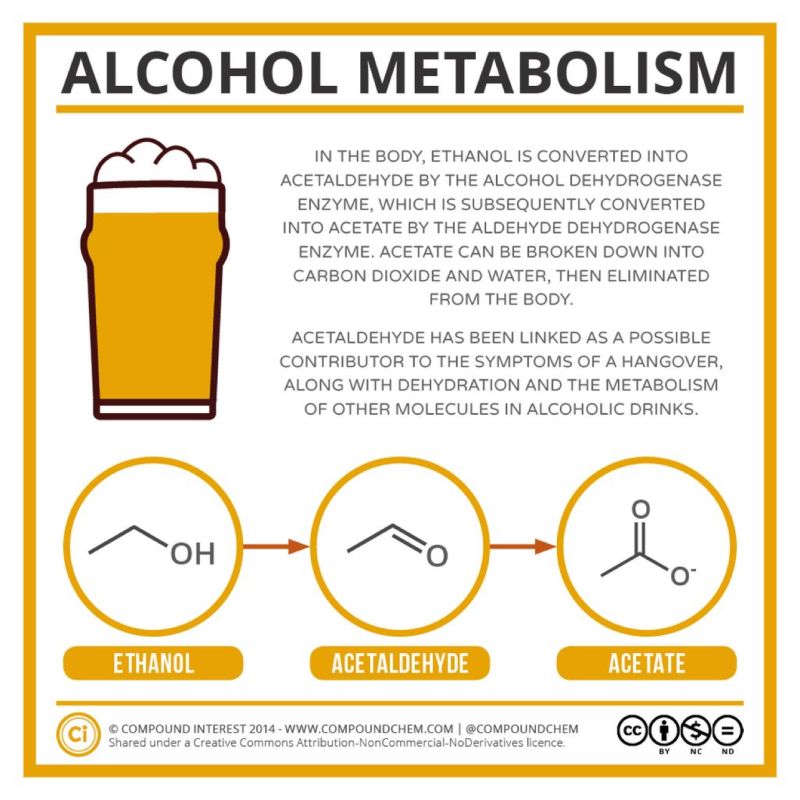Uncover the secret behind alcohol metabolism and tolerance levels with this fascinating dive into the science of getting buzzed.
Table of Contents
Have you ever found yourself wondering how many beers it takes to get you tipsy or fully drunk? The answer to this question is not as straightforward as one might think. In this blog post, we will delve into the intricacies of alcohol metabolism, individual tolerance levels, and the various factors that can influence how intoxicated you feel after consuming alcohol.
Understanding Alcohol Metabolism
Alcohol metabolism is a complex process that takes place in the body when you consume alcoholic beverages. When you drink alcohol, it is absorbed into the bloodstream through the stomach and small intestine. From there, it is metabolized by the liver, where enzymes break down the alcohol into acetaldehyde and then into acetate, which is eventually excreted from the body.
Several factors can affect how quickly your body metabolizes alcohol. Gender, weight, and liver health all play a role in determining an individual’s alcohol metabolism rate. Generally speaking, men tend to metabolize alcohol more quickly than women due to differences in body composition and enzyme levels. Additionally, individuals with a higher body weight or healthier liver may also metabolize alcohol faster than those with lower body weight or compromised liver function.
Individual Tolerance Levels
Alcohol tolerance refers to the body’s ability to adapt to the effects of alcohol over time. Regular alcohol consumption can lead to an increase in tolerance, meaning that it may take more drinks for an individual to feel the same level of intoxication as before.
However, tolerance levels can vary greatly from person to person and can change over time. Genetic factors can also play a role in determining an individual’s alcohol tolerance. Some studies suggest that certain genetic variations may influence how efficiently the body processes alcohol, leading to differences in how alcohol affects different people.
Factors Influencing Intoxication
While the number of beers it takes to get drunk can vary depending on several factors, there are additional considerations that can influence how intoxicated you feel after consuming alcohol. For example, the presence of food in the stomach can slow down the absorption of alcohol, potentially delaying the onset of intoxication.

Image courtesy of via Google Images
Mixing different types of alcohol can also impact how drunk you get. Some people believe that mixing different types of alcohol can result in a worse hangover or make them feel drunker faster. However, the effect of mixing drinks on intoxication is not well-studied, and individual experiences may vary.
External factors such as fatigue, hydration, and overall health can also influence how alcohol affects you. Lack of sleep or dehydration can amplify the effects of alcohol and make you feel drunker than you would if well-rested and properly hydrated.
Conclusion
In conclusion, the answer to the question of how many beers it takes to get drunk is not a simple one. Alcohol metabolism, individual tolerance levels, and various factors influencing intoxication all play a role in determining how alcohol affects you personally.
It is essential to drink responsibly and know your limits when it comes to alcohol consumption. Understanding the science behind alcohol metabolism and tolerance can help you make informed decisions about drinking and ensure that you stay safe while enjoying a night out.
FAQs
How long does it take for the body to metabolize alcohol?
On average, it takes about one hour for the body to metabolize one standard drink of alcohol. However, this can vary based on individual factors like weight, gender, and liver health.
Can tolerance levels change over time?
Yes, alcohol tolerance levels can change over time with regular alcohol consumption. The more frequently someone drinks, the higher their tolerance may become.
Does drinking water help sober up faster?
Drinking water can help with hydration, but it will not speed up the body’s metabolism of alcohol. Time is the only way to sober up as the liver breaks down the alcohol.
Is there a safe amount of alcohol to drink?
The definition of a safe amount of alcohol varies based on individual factors. It is recommended to follow guidelines provided by health organizations and always drink responsibly to avoid any negative consequences.
Generated by Texta.ai Blog Automation


Leave a Reply